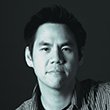Palmer Luckey Discusses the Future of VR

"Virtual reality is likely to be the final form of media,” says the Oculus founder
Just ahead of the Oculus Connect 2 event held last month, we had the opportunity to sit down and speak with Oculus founder Palmer Luckey.
In our 12-minute interview, we cover a variety of high-level topics. In the discussion, Luckey gives us the status and outlook for VR. In the near future, he believes we will see an explosion of people using VR, and tons of VR games in development.
Considering this isn’t VR’s first foray into the market, we also talk about the medium’s past pitfalls and how Oculus VR’s situation is going to be different. Luckey asserts that a key reason why VR is going to work this time around is that the technology simply wasn’t fast enough before. “People just didn’t have machines that could render an experience that was anything close to comfortable or compelling, and that’s all changed,” Luckey stated, adding, “It’s almost entirely a timing issue. It would have been impossible to start Oculus in even the mid-2000s.”
When we asked him if he thought traditional 2D displays would start going away, he replied, “Eventually, but it’s only a matter of time,” adding, “You’re going to see the convergence of AR (augmented reality) and VR technologies into the same headset eventually. It will be something you wear all the time or at least [it will be] something you carry around all the time, and the rendering horsepower will be on the headset or in your pocket and not tied to a big desktop PC.”
Will VR would ever go mainstream in the same way that smartphones are now mainstream? Luckey thinks that it's “just be a matter of time” and that VR will become “truly mainstream when VR headsets drop under $100, like smartphones today.”
Asked if he thinks refreshed VR headsets will come out yearly, sort of following the same cadence as major smartphone releases, he said that he believes it will get there eventually, but not now. On a tangential note, Luckey stated that he thinks the smartphone market will slow down with its yearly iterations once the market matures, “This is just my pet theory, but [smartphones] are going to stop refreshing so fast in the future, because there's not going to be much further for them to go. There’s not going to be a reason to refresh every single year. You’ll be able to have one solid device that lasts you several years. Just like you have a car. People don’t replace their car every year.”
Is it likely that VR might be just a niche product? Luckey asserts, “Virtual reality will be a niche product for at least some time,” then added, “If you look at the Palm Pilot, it’s sort of a good example. The Palm Pilot was very well known. It was very influential, but it wasn’t something everyone wanted to use or could justify. They sold millions of units and lots of people recognized Palm Pilot as a great brand, but you could say the Palm Pilot was [still] a niche product… Eventually the technology got good enough, the cost came down enough that we had things like the iPhone, where it really took off and everyone could justify having the tech in their lives. I think virtual reality will be on the same continuum. It can be successful as a niche product. It doesn’t have to be mainstream and appeal to everyone in the world in order to be successful, but that is the eventual end goal; to build something everybody will have a use for. I think that virtual reality will inevitably have a use for everyone because anything you can imagine of doing in real life, you can do as good or better in virtual reality without physical laws governing what you can do.” Palmer then cited travel, education, and even virtual past time travel as examples of what VR could do. “We can’t [virtual time travel] with any other technology,” he exclaimed.
Keep up to date with the most important stories and the best deals, as picked by the PC Gamer team.
When asked what the most popular type of experiences VR will bring about, he replied, “I think in the long run, there won’t be one type of content that dominates. If you look at books for example, you have a wide range of things. Some are educational, some are fun, some are fiction, some are non-fiction. I think VR will be kind of similar. …it’s going to [have] a wide range of uses.”
Setting his sights for VR high, Luckey asserted,“Virtual reality is likely to be the final form of media,” Backing up his claim, he added, “It’s hard to go up against something that can not only be its own set of media, but replicate every other form of media that’s ever existed.”


